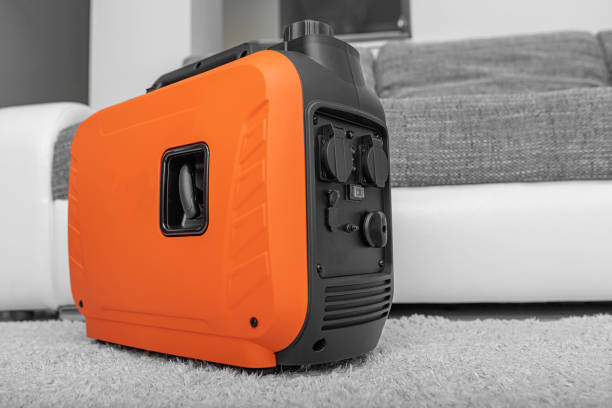
Construction site energy station: what power - LymobileShop
Share
Power station for construction sites: what power and capacity should you choose?
Power tools, vacuum cleaners, lights: here's the field guide to choosing a power station suited to your job site. We explain inverter power (continuous & peak), Wh capacity according to the target autonomy, engine starting peaks , actual autonomy and essential safety points - with recommendations ready for purchase at LymobileShop .
Power of Tools: Quick References
Every tool has a rated power (W) and, if it has a motor, a high starting peak . Here are some common orders of magnitude:
| Tool | Nominal (W) | Peak (W ridge) | Remarks |
|---|---|---|---|
| Corded drill/driver | 400–800 | 800–1200 | Variable speed → short peaks |
| SDS hammer drill | 800–1200 | 1500–2200 | Peak at startup/percussion |
| Grinder 125/230 | 900–2200 | 1800–4000 | Disk inertia = sharp peak |
| Circular saw | 1200–1800 | 2500–3500 | Strong peak when throwing |
| Construction site vacuum cleaner | 800–1400 | 1600–2500 | Engine + filter = sustained load |
| LED projector | 20–100 | — | Light and continuous load |
| Tool battery charging case | 200–500 | — | AC/USB-C charging depending on model |
Always read the nameplate. If only the current is indicated: W ≈ V × A (e.g. 230 V × 5 A ≈ 1150 W).
Inverter: continuous power, surge (peak) & motor compatibility
What to aim for
- Pure sine wave for motors & sensitive electronics.
- Margin 50% above your expected continuous power.
- High peak (2–3× nominal) to handle starts.
To avoid
- “Modified” inverter: risk of heating/noise on motors.
- Sum greedy tools simultaneously without margin.
- Extension cords with poor cross-section (heating).
Wh capacity: calculates the realistic autonomy for a construction site
Capacity (Wh) determines power duration . Consider efficiency (~85% with AC conversion, dust, temperature).
Autonomie (h) ≈ (Capacité Wh × 0,85) / Puissance moyenne (W)
Concrete examples
- 60W LED floodlight with 500Wh → 500×0.85/60 ≈ 7.1h
- 1000 W vacuum cleaner in intermittent use 30% (duty cycle) → average ~300 W → 700 Wh → 700×0.85/300 ≈ 2.0–2.5 h depending on performance/breaks
- Charging tool batteries 300 W → 500 Wh → 500×0.85/300 ≈ 1.4–1.6 h (several packs depending on Ah)
“Cyclic” work: cutting/suction/pauses → the average power is often lower than the nominal.
Typical scenarios and recommended configurations
Light carpentry
- Jigsaw 600–800 W + LED
- Inverter 1200–1500 W (peak 2500–3000 W)
- Capacity 500–700 Wh minimum
Tiling & renovation
- 1200 W grinder + 1000 W vacuum cleaner not simultaneous
- Inverter 1500–2000 W (peak 3500–4000 W)
- Capacity 700–1000 Wh
Painting & finishing
- 2x60W projectors + battery charger
- 600–1000 W inverter
- Capacity 500–700 Wh
If you need to combine loads (grinder + vacuum at the same time), aim for a higher inverter and increase the capacity.
On-site charging: mains, generator, solar
- Mains (if available): quick recharge between two sessions.
- Generator : powers the station in “buffer” mode to smooth out peaks and reduce noise/overall consumption.
- Solar : 120–200 W foldable panels + integrated MPPT → recovers 200–600 Wh/d depending on the season.
Our recommendations (ready to buy)
Station 500–700 Wh — inverter 600–1200 W
Versatile for lighting, small power tools, occasional vacuuming and battery charging.
- Pure sine, LiFePO₄ , mains + solar inputs
- Ports: AC, USB-C PD, 12V
- Clear screen (input/output/remaining Wh)
1000 Wh+ station — 1500–2000 W inverter
To combine grinder/suction (not strictly simultaneous), long autonomy and repeated cycles.
- High peak for engine starts
- Efficient MPPT, multiple ports
- Robust and durable (LFP)
Station + panel 160–200 W
Daily recharge in the sun to maintain lighting + recharge tools without depending on the network.
- Compatible connectors (XT60/Anderson/DC)
- Easy storage/transport (foldable)
- Ideal for isolated sites
Safety & Purchase Checklist (Error Proof)
- Inverter : pure sine, 50% margin, high peak (motors).
- Capacity : calculated with average power , not nominal.
- Chemistry : LiFePO₄ (lifespan, thermal stability).
- Inputs : mains + solar (MPPT), vehicle socket if necessary.
- Ports : AC 230V, USB-C PD (60-100W), 12V.
- Cables : certified extension cords, suitable cross-section (≥1.5 mm²).
- Environment : Protect from rain/dust, avoid direct sunlight.
- Maintenance : dust, ventilate, firmware updates if available.
🧯 Does not cover the station. Avoids AC > inverter loads. Turns off AC output when not needed.
FAQ
I want to run a 1200W grinder: which station?
Inverter ≥1500 W (peak ≥3000 W) and capacity 700–1000 Wh if you want to work several hours in intermittent use.
Grinder + vacuum cleaner together?
Possible with a 2000W inverter and a high peak, but the autonomy drops quickly. Alternate or increase the capacity (1000Wh+).
Generators vs. stations?
The group delivers a lot of W but is noisy and energy-intensive. The station is silent , instantaneous and can be recharged by solar power .
How long does it take to recharge with solar?
160 W × 3 h useful ≈ 480 Wh . Sufficient for lighting, recharging tool batteries, small intermittent power tools.
Can you use long extension cords?
Yes, but choose a good cross-section (≥1.5 mm²) to limit voltage drop and heating.
LymobileShop Trust & Services
- French company – support based in France
- Fast delivery & tracking
- 100% secure payment (CB/Stripe/PayPal)
- Responsive after-sales service – advice before/after purchase
- 14-day returns & 2-year warranty depending on model
Ready to equip your construction site?
Choose a station with pure sine wave , the right power (margin + peak), and a Wh capacity aligned with your day. Add a 160–200 W panel for on-site charging.
Basket tip: think about extension cords and a compatible XT60/Anderson cable .
